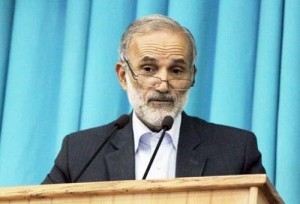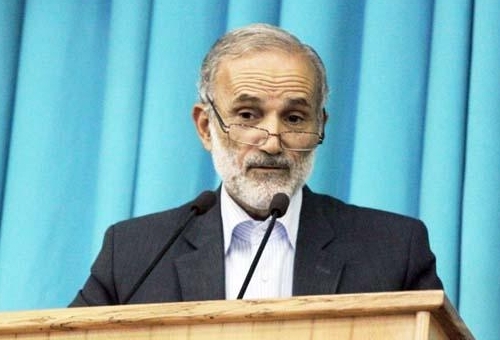 TEHRAN (FNA)- Launching the heavy water reactor in the Central city of Arak and staying out of the Additional Protocol to the Non-Proliferation Treaty (NPT) demanded by the world powers are among Iranís most important redlines, a senior legislator said Wednesday.
TEHRAN (FNA)- Launching the heavy water reactor in the Central city of Arak and staying out of the Additional Protocol to the Non-Proliferation Treaty (NPT) demanded by the world powers are among Iranís most important redlines, a senior legislator said Wednesday.ď(Non-acceptance of) the Additional Protocol is the main redline of the Islamic Republic of Iran,Ē member of the parliamentís Energy Commission Ebrahim Karkhaneyi said, addressing an open session of the parliament on Wednesday.
ďMaintaining the infrastructures in Fordo nuclear installations for enrichment over the 5% level needed for the country is a necessity, and completion and launch of the 40MW heavy water reactor of Arak as the symbol of power of domestic production and the ingenuity of the Iranian youth are among the main strategic redlines of the Islamic Republic of Iran,Ē he added.
The additional protocol was created following the discovery of clandestine nuclear weapons programs in Iraq and North Korea during the 1990s. Countries conclude specific additional protocols to supplement their International Atomic Energy Agency (IAEA) safeguards arrangement.
For the Additional Protocol to be enforced in any country, it needs the approval of both the government and the parliament of that country.
In addition to those which have basically rejected endorsement of the NPT, most signatories to the NPT have also defied accepting the agreement. Accepting the protocol is a voluntary, and not compulsory, decision.
In October, the Iranian foreign ministry underlined the good interactions between the government and parliament, specially in regard to the settlement of the country's nuclear issue, and said the legislature has the jurisdiction to deal with the countryís approval or non-approval of the Additional Protocol.
ďThere is a very good interaction between the government and the parliament and the parliament speaker (Ali Larijani) is informed of the process of the negotiations and the relevant discussions,Ē Foreign Ministry Spokeswoman Marziyeh Afkham told reporters in Tehran at the time.
ďMaking a decision about the Additional Protocol is a responsibility vested on the parliament which will decide about the issue based on the trend of the negotiations and progress in debates (with the world powers),Ē she added.
On November 24, Iran and the six world powers (the US, Russia, China, Britain and France plus Germany) sealed an interim deal (the Joint Plan of Action) in the Swiss city of Geneva to lay the groundwork for the full resolution of the dispute between the West and Iran over Tehranís nuclear energy program.
In exchange for Iran agreeing to limit certain aspects of its nuclear activities, the six countries undertook to lift some of the existing sanctions against Tehran.
By Fars News Agency†
The Iran Project is not responsible for the content of quoted articles.











